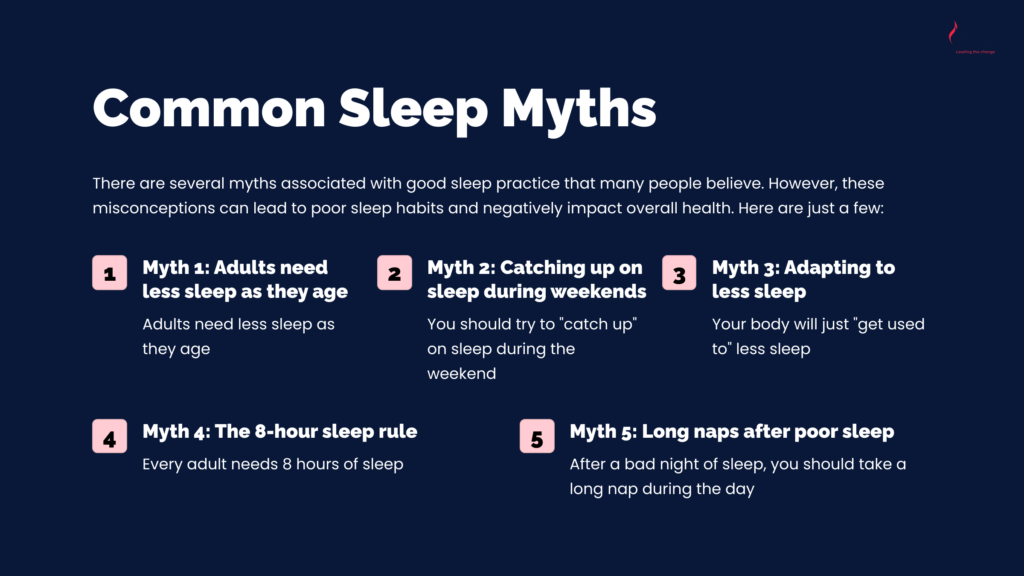Section 1: Debunking Sleep Myths
There are many misconceptions about developing and maintaining good sleeping habits which can have a profound effect on our quality of life during our menopausal years.

Some of the myths associated with good sleep practice include:
1. Adults need less sleep as they age: Although sleep patterns can change as we age, the need for sleep does not decrease with age. Most adults, regardless of their age, require between 7 to 9 hours of sleep per night to function optimally.
2. You should try to “catch up” on sleep during the weekend: Attempting to “catch up” on sleep during weekends can disrupt the body’s circadian rhythm. Instead, maintaining a consistent sleep schedule every day of the week is crucial for good sleep hygiene.
3. Alcohol is an effective sleep aid: While alcohol may help you fall asleep faster, it significantly impairs the quality of sleep by reducing REM sleep and causing frequent awakenings throughout the night.
4. You should stay in bed, even if you are having trouble sleeping: Staying in bed while struggling to sleep can lead to frustration and associate the bed with wakefulness. It’s recommended to leave the bed and do something relaxing until you feel sleepy.
5. Bedrooms should be 70-72 degrees Fahrenheit: A cooler bedroom, typically around 60 to 68 degrees Fahrenheit, is more conducive to sleep, as it helps lower the body’s core temperature, signaling that it’s time to sleep.
6. Your body will just “get used to” less sleep: Chronic sleep deprivation has long-term health risks, including impacts on cognitive function, mood, and physical health. The body does not “get used to” sleep deprivation and will continue to suffer the effects.
7. Every adult needs 8 hours of sleep: While 8 hours is a common generalization, sleep needs vary by individual. Some may need only 7 hours, while others need up to 9 hours to feel rested.
8. Hitting the snooze button is a good idea: Hitting the snooze button can fragment what little rest you are getting, and the short bursts of sleep between alarms aren’t restorative, making you feel groggier.
9. After a bad night of sleep, you should take a long nap during the day: Long daytime naps can interfere with nighttime sleep. If needed, it’s better to limit naps to 20-30 minutes earlier in the day.
10. Sleep hygiene is important only during the evening hours: Sleep hygiene encompasses practices throughout the day, including exposure to natural light in the morning and avoiding caffeine in the afternoon, which are important for maintaining a healthy sleep cycle.
It’s essential to understand what’s fact and what’s fiction when it comes to good sleep hygiene – then, you can develop an effective sleep plan that works for you.




